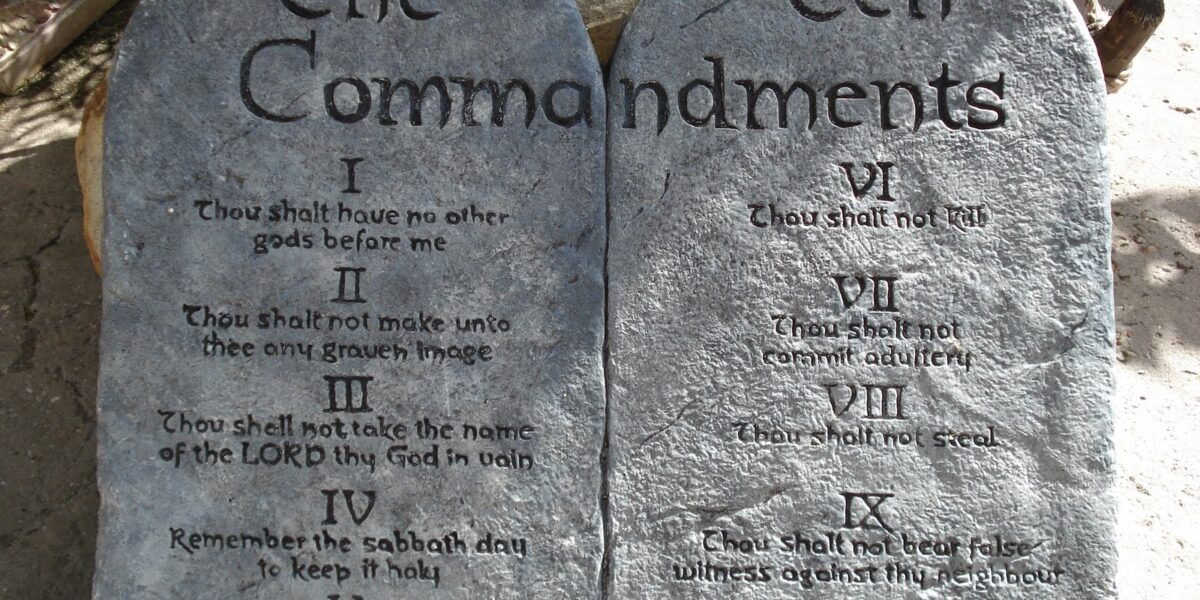Jahangir Mohammed argues that the West has elevated the Israeli ethno-state into a God and is silencing dissenting voices in the name of this sacred cow.
Israel is The God of Western Politics
In the political theology of the West, there is one god who must not be blasphemed, one sacred cow whose image cannot be defiled: Israel. In the eyes of many Western politicians, Israel is not merely a state — it is a deity before whom all must bow. The exceptional status it enjoys in public discourse and foreign policy is not rational, but religious. It follows not the logic of diplomacy, but the blind reverence of scripture.
This reverence echoes the Ten Commandments, the foundational laws of biblical monotheism. These ancient rules, meant to sanctify one God above all others, have been politically reinterpreted in how Israel is treated in the West.
“You shall have no other gods before me.” In Western foreign policy, there is no ally held above Israel. Human rights, international law, and even national interest often take a backseat to unwavering loyalty to the Israeli state. No matter how many war crimes are committed, how many children are killed in Gaza, how many journalists or aid workers are bombed — as seen in the April 2024 airstrike that killed seven World Central Kitchen staff — the Western chorus remains the same: Israel has the right to defend itself. U.S. President Joe Biden described the deaths as “a tragic loss” but stopped short of condemning the Israeli military. UK Prime Minister Rishi Sunak said he was “deeply saddened” but reaffirmed the UK’s “support for Israel’s security.”
“You shall not make for yourself a carved image… You shall not bow down to them or serve them.” And yet, the West has made an image — a false idol of Israel as a moral beacon, a democracy under siege, a victim fighting for survival. This idealised projection bears little resemblance to the apartheid regime described by Amnesty International, Human Rights Watch, and B’Tselem. The reality on the ground — the military occupation, the blockade of Gaza, the systemic discrimination — is erased in favour of myth-making. Politicians continue to bow to this image, worshipping not the reality, but the narrative.
“You shall not take the name of the Lord your God in vain.” To speak Israel’s name critically in Western politics is to risk immediate punishment. In the UK, former Labour leader Jeremy Corbyn was suspended from the party he once led after rejecting the scale of antisemitism claims made under his leadership — claims that were often entangled with his vocal support for Palestine. In Germany, members of parliament face censure for calling Israel’s actions in Gaza a form of ethnic cleansing. Criticism of Israel — no matter how measured, no matter how rooted in international law — is treated as political blasphemy. The charge of antisemitism is often weaponised not to protect Jewish communities, but to preserve Israeli impunity.
“You shall not murder.” A clear and direct commandment — and yet the daily slaughter in Gaza continues, with Western governments supplying arms, intelligence, and diplomatic cover. The killing of civilians, of children, of aid workers is rationalised, minimised, and in some cases, completely denied. When states break this commandment, the churches of power stay silent. The lives lost are not counted in sermons from Downing Street or Capitol Hill.
“You shall not bear false witness against your neighbour.” This commandment is broken daily by those who smear Palestinians and their allies as terrorists, extremists, or antisemites simply for speaking the truth. It is broken by media outlets that erase context, that refuse to name the occupation, and that frame settler colonialism as a defensive war. It is broken by politicians who pretend neutrality while propping up a regime of apartheid.
“You shall not covet your neighbour’s house… or anything that belongs to your neighbour.” The illegal settlements in the West Bank are acts of covetousness enshrined in policy. Land theft, home demolitions, and the denial of return for Palestinian refugees are rooted in a theology of entitlement — a belief that some lives are worth more, some people are chosen, and others are disposable. And Western governments, rather than opposing this biblical injustice, help fund and justify it.
Some of this reverence draws theological legitimacy from scripture itself. The oft-quoted line from Genesis 12:3 — “I will bless those who bless you, and whoever curses you I will curse” — is used by Christian Zionists to sanctify unquestioning support for Israel. Similarly, Zechariah 2:8 declares, “Whoever touches you touches the apple of His eye,” reinforcing the idea that to criticise Israel is to offend God. These verses, originally spiritual in intent, have been secularised into political dogma — a divine shield for a state committing daily violations of human rights.
At Easter, Christians are reminded of Jesus’ radical, anti-authoritarian message. It is worth recalling that Christ himself was persecuted by a political and religious establishment afraid of truth and justice. Jesus was not a friend of empire — he was allegedly executed by it. He aligned himself with the marginalised, spoke truth to power, overturned the tables of the corrupt, and wept for the oppressed. In Luke 19:41-44, Jesus weeps over Jerusalem, foreseeing destruction because its people “did not recognise the time of God’s coming to you.” The message remains timely: destruction follows when injustice and false idols are sanctified.
Jesus was also vilified for blasphemy — for challenging sacred authority and defying religious nationalism. He was criminalised not for hatred, but for divine love. In today’s context, those who stand with Palestine are similarly demonised, excluded, and accused of heresy against the established order.
The reverence for Israel among Western politicians is not only unwavering — it is fearful. Some dare not utter a word of criticism. Others tremble before this god even when questioned. When grilled on Israeli war crimes, they shift in their seats, mumble through generic statements about peace, and retreat to scripted lines about Israel’s security. It is not diplomacy. It is devotion.
Perhaps the most theatrical expression of this came when Israeli Prime Minister Benjamin Netanyahu addressed the U.S. Congress. He was met with thunderous applause, not once but dozens of times — standing ovation after standing ovation, as if he were a prophet, a king, a god. Members of Congress rose in unison, their loyalty not just expressed but performed. It was not policy-making — it was liturgy. Not debate — but ritual worship.
Donald Trump, speaking in 2024, declared that if Iran does not abandon its nuclear program, Israel would take the lead in military action, stating, “Israel will have to do what it has to do… We’ll back them up, but they’ll probably go first.” Such words not only expose U.S. deference to Israeli militarism but elevate Israel to a position of pre-emptive authority, as if it were the executor of divine judgment.
Keir Starmer, leader of the UK Labour Party, voiced his unwavering support for Israel’s actions in April 2024, stating, “We stand with Israel and we recognise her right to self-defence in the face of this aggression.” Starmer’s rhetoric remains framed by outright support at times, caution, calculated not to provoke the idol of the Westminster consensus.
Even the mainstream Western media functions as a temple to this political deity. It omits, distorts, or downplays Israeli crimes, ensuring that no sustained criticism breaks through the news cycle. Words like “apartheid,” “ethnic cleansing,” or even “occupation” are often scrubbed from headlines. While Palestinian deaths are presented in the passive voice, Israeli suffering is personalised and foregrounded. The ongoing genocide in Gaza is rarely named as such, even when the scale of destruction, the targeting of civilians, and the siege tactics meet every international definition of the term. Media outlets that dare to break this orthodoxy are swiftly marginalised, and journalists who speak too boldly face backlash, job loss, or worse. The media, like the priesthood of old, maintains the sanctity of the idol by silencing dissent and absolving sin. Figures like Piers Morgan have turned interviews into inquisitions, often reducing complex geopolitical discussions into one bludgeoning demand: “Do you condemn Hamas?” This litmus test is used to derail criticism of Israel and frame Palestinian voices as inherently suspect.
This sacred status has real-world consequences. It allows for the erasure of Palestinian suffering. It enables the continuation of a brutal siege on Gaza, where over 40,000 Palestinians — the majority innocent civilians — have been killed since October 2023, according to the Gaza Health Ministry. It fuels the sense of Western hypocrisy that destabilises global alliances and discredits the rule of law. It also alienates younger generations and communities in the Global South who see double standards.
Some have broken ranks. South Africa’s case against Israel at the International Court of Justice — accusing it of genocide in Gaza — marked a seismic moment. Irish MP Richard Boyd Barrett accused the Irish government of being complicit by silence. Spanish Prime Minister Pedro Sánchez stated in March 2024 that he was “deeply troubled” by Israel’s actions and suggested that recognition of a Palestinian state was imminent. These are signs of a global awakening.
The cracks are spreading. In the United States, young Jewish voices from groups like Jewish Voice for Peace and IfNotNow are challenging the idea that support for Israel is synonymous with support for Jewish identity. In the UK, student occupations and grassroots protests have brought Palestine into the heart of political discourse. These movements, often vilified, are fighting to reclaim moral clarity from the fog of state worship.
But the sacred cow still stands, golden and glowing in the halls of Washington, London, Paris, and Berlin.
To question Israel’s actions is not antisemitic. It is a moral imperative. No state should be above critique. No god should demand silence in the face of slaughter.
In a secular democracy, no commandment should be obeyed without question. Especially not when lives hang in the balance.
We must speak—clearly, consistently, and collectively. We must challenge the idolatry of state power wrapped in theology. We must demand accountability from our elected leaders, push for sanctions, support grassroots organising, and amplify Palestinian voices. Silence is complicity. Deference is betrayal. This is not merely a matter of policy but of conscience and even divine command.
It is time to shatter the idol.



Leave a Reply